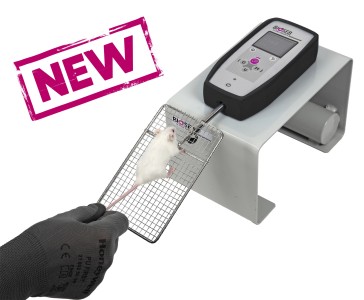Authors
J Zhao, L Zhang, X Mu, C Doebelin, et al.
Lab
Department of Molecular Medicine and the TSRI Center on Aging, The Scripps Research Institute, Jupiter, Florida, United States of America
Journal
PLOS Biology
Abstract
Nuclear factor κB (NF-κB) is a transcription factor important for regulating innate and adaptive immunity, cellular proliferation, apoptosis, and senescence. Dysregulation of NF-κB and its upstream regulator IκB kinase (IKK) contributes to the pathogenesis of multiple inflammatory and degenerative diseases as well as cancer. An 11–amino acid peptide containing the NF-κB essential modulator (NEMO)-binding domain (NBD) derived from the C-terminus of β subunit of IKK, functions as a highly selective inhibitor of the IKK complex by disrupting the association of IKKβ and the IKKγ subunit NEMO. A structure-based pharmacophore model was developed to identify NBD mimetics by in silico screening. Two optimized lead NBD mimetics, SR12343 and SR12460, inhibited tumor necrosis factor α (TNF-α)- and lipopolysaccharide (LPS)-induced NF-κB activation by blocking the interaction between IKKβ and NEMO and suppressed LPS-induced acute pulmonary inflammation in mice. Chronic treatment of a mouse model of Duchenne muscular dystrophy (DMD) with SR12343 and SR12460 attenuated inflammatory infiltration, necrosis and muscle degeneration, demonstrating that these small-molecule NBD mimetics are potential therapeutics for inflammatory and degenerative diseases.
BIOSEB Instruments Used
Grip strength test (BIO-GS3)
Source :
http://journals.plos.org/plosbiology/article?id=10.1371/journal.pbio.2004663

 Douleur - Allodynie/Hyperalgésie Thermique
Douleur - Allodynie/Hyperalgésie Thermique Douleur - Spontanée - Déficit de Posture
Douleur - Spontanée - Déficit de Posture Douleur - Allodynie/Hyperalgésie Mécanique
Douleur - Allodynie/Hyperalgésie Mécanique Apprentissage/Mémoire - Attention - Addiction
Apprentissage/Mémoire - Attention - Addiction Physiologie & Recherche Respiratoire
Physiologie & Recherche Respiratoire




































 Douleur
Douleur Système Nerveux Central (SNC)
Système Nerveux Central (SNC)  Neurodégénérescence
Neurodégénérescence Système sensoriel
Système sensoriel Système moteur
Système moteur Troubles de l'humeur
Troubles de l'humeur Autres pathologies
Autres pathologies Système musculaire
Système musculaire Articulations
Articulations Métabolisme
Métabolisme Thématiques transversales
Thématiques transversales Congrès & Meetings
Congrès & Meetings 